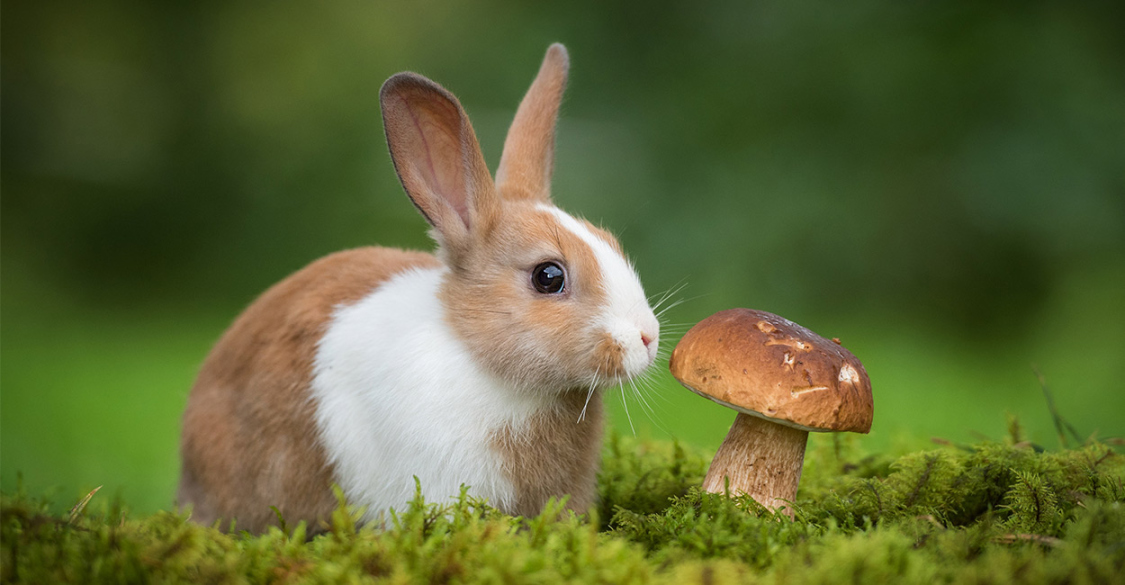Can Rabbits Eat Mushrooms?
Rabbits are herbivores and their diet primarily consists of grass, hay, vegetables, and fruits. While mushrooms are not toxic to all animals, it is important to know whether rabbits can safely consume them. In this article, we will explore whether rabbits can eat mushrooms, the potential risks associated with feeding mushrooms to rabbits, and the recommended diet for these furry little creatures.

Are Mushrooms Safe for Rabbits?
Although some species of mushrooms are safe for human consumption, the same cannot be said for rabbits. In general, it is best to avoid feeding mushrooms to rabbits due to the potential risks they pose. Mushrooms are not a natural part of a rabbit’s diet and can lead to various health problems if ingested.
Risks of Feeding Mushrooms to Rabbits
Feeding mushrooms to rabbits can be risky for several reasons:
- Toxicity: Certain types of mushrooms can be toxic to rabbits. These toxic mushrooms contain harmful substances that can cause digestive issues, liver damage, and even death in severe cases. It is often challenging to identify which mushrooms are toxic, so it is best to err on the side of caution and avoid feeding mushrooms altogether.
- Digestive Upset: Even non-toxic mushrooms can cause digestive upset in rabbits. The high moisture content and unique composition of mushrooms can disrupt a rabbit’s sensitive digestive system, leading to diarrhea, bloating, or other gastrointestinal issues.
- Intestinal Blockages: Mushrooms can be challenging for rabbits to digest and may potentially cause intestinal blockages. Rabbits have a delicate digestive system that is adapted to process fibrous plant material. Mushrooms, being a different type of food, can get stuck in their digestive tract, causing serious health complications.
Recommended Diet for Rabbits
Rabbits have specific dietary requirements to maintain optimal health. Their diet should consist of the following:
- Hay: Fresh, high-quality hay, such as timothy or grass hay, should make up the majority of a rabbit’s diet. Hay provides essential fiber for promoting digestive health and helps wear down their constantly growing teeth.
- Vegetables: Leafy green vegetables like kale, spinach, and romaine lettuce can be given in small amounts as a supplement to hay. Introduce new vegetables gradually to avoid digestive upsets.
- Fruits: Fruits should be given sparingly as treats due to their high sugar content. Safe fruits for rabbits include apples, strawberries, and blueberries.
- Pellets: High-quality rabbit pellets should be provided in limited quantities to ensure proper nutrition. Look for pellets that are primarily made from hay and do not contain added sugars or artificial additives.
- Water: Fresh, clean water should always be available for rabbits to drink.
Tip: It is important to introduce new foods to rabbits slowly and in small amounts to avoid upsetting their delicate digestive system.
Frequently Asked Questions (FAQs)
1. Can rabbits eat mushrooms from the grocery store?
No, it is best to avoid feeding mushrooms from the grocery store to rabbits. Most store-bought mushrooms undergo various processes and may contain additives or pesticides that can be harmful to rabbits.
2. What if my rabbit accidentally ate a mushroom?
If your rabbit accidentally ingests a small amount of mushroom and shows no immediate signs of distress, closely monitor their behavior and consult a veterinarian if any unusual symptoms or changes occur.
3. Are all wild mushrooms toxic to rabbits?
No, not all wild mushrooms are toxic to rabbits; however, it can be incredibly challenging to distinguish between toxic and non-toxic mushrooms. To ensure the safety of your rabbit, it is best to keep them away from all types of wild mushrooms.
4. Can rabbits eat medicinal mushrooms?
While some medicinal mushrooms, such as reishi or turkey tail, may offer health benefits for humans, it is not recommended to feed them to rabbits. Rabbits have specific dietary needs that are best met through their natural diet of hay, vegetables, and fruits.
Related Articles…
Copyright Notice:
Images displayed on this website are not our property, but are procured from the internet. If you hold copyrights to any image and wish for its removal, please get in touch with us.